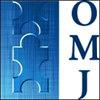学生作为游戏设计者和开发者:开发合作战略棋盘游戏,教授团队领导技能
Q2 Social Sciences
引用次数: 0
摘要
本手稿旨在强调游戏化如何改变招聘、留用和培训工作,以解决员工在不断变化的工作场所中的参与挑战。作者与游戏行业的专家和设计师合作,通过演示如何设计和玩自己原创的合作战略游戏,向学生传授团队领导技能。在此过程中,学生们了解了什么是游戏化,以及如何利用游戏化来培训我们的多代劳动力;设计棋盘游戏如何教授团队领导技能(如沟通、冲突管理、权力、决策);以及如何开发合作策略游戏元素(玩家角色、作用和行动),从而激发引人入胜的游戏玩法,并取得成功的学习成果。在本文中,作者讨论了为期三个学期的体验式学习经历的实际意义,其中游戏设计向学生展示了员工如何在团队中协同工作。学生们开发的故事情节(即战略目标)包括激励挑战、社交媒体沟通故障、破坏、全球可持续发展和其他现实世界的挑战。在第 1 阶段,学生将了解公司如何利用游戏化培训高绩效团队。在第 2 阶段,学生与自己的学生团队一起玩合作战略游戏 "禁岛"。大约 400 名学生开发了 48 个原创合作策略游戏,可用于教授团队领导技能。这些学生团队设计了合作战略棋盘游戏--在游戏中,整个团队的输赢取决于他们对有价值资源的控制,以及作为关键决策点的玩家行动。数据和反馈表明,这种学习体验帮助他们在做出有效决策时切实考虑到团队的相互依存性,并在自己的领导声音中建立起创造性的自我效能感、应变能力和自信心。在本手稿中,作者重点介绍了我们为期一学期的体验式学习活动的概况和实施计划。原创性/价值这项体验式活动从 2019 年到 2023 年在不同的学习模式(面对面、混合式、100% 同步在线学习)和具有挑战性的时期(大流行前、大流行中和大流行后的学习环境)实施。这些不同的经历给他们带来了挑战,即如何在资源有限的情况下坚持不懈,并以一种创造性的参与方式学习自身的人际交往技能和应变能力。由于 COVID,学生们在 100% 同步远程学习期间开发了 26 个原创游戏。据作者所知,目前还没有其他商学院与游戏行业专家和游戏设计师合作,在流行前和流行后的环境中以这种程度教授团队领导力。本文章由计算机程序翻译,如有差异,请以英文原文为准。
Students as game designers and developers: developing cooperative strategy board games to teach team leadership skills
Purpose
The purpose of this manuscript is to highlight how gamification is transforming recruitment, retention and training to resolve employee engagement challenges in the ever-changing workplace. In collaborating with game industry experts and designers, the authors taught students team leadership skills by demonstrating how to design and play their own original cooperative strategy games. In doing so, students learn what gamification is and how it can be used to train our multigenerational workforce; how designing board games teaches team leadership skills (e.g. communication, conflict management, power, decision-making); and how to develop cooperative strategy game elements (player characters, roles and actions) that motivate engaging gameplay with successful learning outcomes.
Design/methodology/approach
In this paper, the authors discuss the practical implications of a three-phase semester-long experiential learning experience, where game design demonstrates to students how employees can work collaboratively together in teams. Students’ developed storylines (i.e. strategic objectives) including motivation challenges, social media communication breakdowns, sabotage, global sustainability and other real-world challenges. In Phase 1, students learn about how companies are using gamification in training high-performing teams. In Phase 2, students play a cooperative strategy game Forbidden Island with their student teams. In Phase 3, students design (and play) their original cooperative strategy game, instructions booklet and build a facilitation guide.
Findings
Approximately, 400 students developed 48 original cooperative strategy games that can be used to teach team leadership skills. These student teams designed cooperative strategy board games – in which the entire team either wins or loses based on their control of valued resources and player actions as key decision-making points. The data and feedback indicate that the learning experience helped them practically consider team interdependence in making effective decisions, and in creating creative self-efficacy, resilience and self-confidence in their own leadership voice. In this manuscript, the authors focus on providing an overview and implementation plan for our semester-long experiential learning exercise.
Originality/value
This experiential exercise was implemented from 2019 to 2023 in different learning modalities (face-to-face, hybrid, 100% synchronous online learning) and during challenging times (prepandemic, pandemic and postpandemic learning environments). These varying experiences provided them with a challenge to persevere and learn about their own interpersonal skills and resilience in a creative engaging way with limited resources. Students developed 26 original games during 100% synchronous remote learning due to COVID. To the best of the authors’ knowledge, no other business school is working with gaming industry experts and game designers to teach team leadership to this degree during pre- and postpandemic environments.
求助全文
通过发布文献求助,成功后即可免费获取论文全文。
去求助
来源期刊

Organization Management Journal
Social Sciences-Education
CiteScore
2.60
自引率
0.00%
发文量
13
审稿时长
8 weeks
期刊介绍:
Organization Management Journal is a blind peer-reviewed online publication sponsored by the Eastern Academy of Management. OMJ is designed as a forum for broad philosophical, social, and practical thought about management and organizing. We are interested in papers that address the interface between theoretical insight and practical application and enhance the teaching of management. OMJ publishes scholarly empirical and theoretical papers, review articles, essays and resources for management educators. Appropriate domains include: -Organizational behavior- Business strategy and policy- Organizational theory- Human resource management- Management education, particularly experiential education
 求助内容:
求助内容: 应助结果提醒方式:
应助结果提醒方式:


